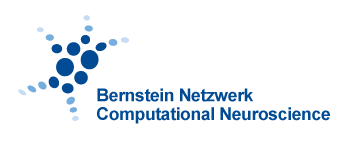Physics of cognition: dynamical models of the ordered and disordered brain
Organizers
Hamidreza Jamalabadi | Philipps-Universität Marburg, Germany
Abstract
Neuroscience has made remarkable progress in recent years, significantly deepening our understanding of the brain’s relationship with behavior and its disorders. Despite these advancements, our capability to develop constructive models for cognitive functions like memory and emotion, which would allow for personalized, goal-directed interventions, is still in its infancy. This raises a crucial question: How close are we to establishing foundational models of cognitive functions that mirror the fundamental principles seen in physics and engineering, such as Newton’s laws of motion? Is this necessary or even plausible? More pressing is the question of how far we have come in leveraging our neuroscientific knowledge to develop concrete, computational solutions for clinical and other applications. A notable example is the limited application of functional neuroimaging in routine psychiatric care, despite substantial investments in this area. How far are we from utilizing neuroscience in psychiatry to shape treatment policies or create predictive models? Related, there is an emerging disconnect between the advancements in artificial intelligence (AI) and neuroscience evidence. For instance, the latest generations of artificial neural networks, like transformers, have shown improved performance but are increasingly deviating from principles grounded in neuroscience. Does this mean that progress in AI is becoming independent of neuroscience? Furthermore, it poses the question of whether two fundamentally different cognitive systems—one based on the human brain and the other on AI—can exist, each following its own unique construction principles, and if so, to what extent it is possible to port insights from biological brains into artificial brains, and vice versa? Faced with these challenges, the scientific community is increasingly recognizing the potential of complexity science, including generative AI and Dynamical Systems Theory (DST). These approaches are not new to neuroscience but applying them to understand cognitive processes and disorders is a relatively recent development. It is only in the last few years that we have started to see generative models capable of realistically reconstructing memories—or at least creating qualitative models of them. Similarly, models tracking the progression of psychiatric symptoms over time and mathematical tools capable of deducing entire dynamical systems from partial observations subject to stochastic fluctuations are just emerging. This shift towards complexity science and advanced modeling techniques is driven by several factors. Our struggles to apply neuroscience knowledge practically, advancements in DST like data-driven reconstruction algorithms, the availability of big open datasets, and significant improvements in computational power have all contributed. In this workshop, our collective goal is to discuss the questions raised above around the physics of cognition, and critically evaluate the potential and limitations of current methodologies from the perspective of dynamical system theory. We have gathered an exceptional ensemble of neuroscientists, coming from varied fields such as engineering, physics, and medicine, all united by a common interest in cognitive modeling. Our speakers stand out for their renowned contributions to neuroscience, employing and advancing computational techniques within the realms of machine learning, dynamical systems, control theory, and deep learning-driven generative AI. They apply these advanced methodologies to a broad spectrum of data types, including BOLD fMRI, electrophysiology, EEG, and behavioral data, to explore various cognitive functions and disorders. The discussions at our workshop will span a wide array of subjects, from understanding fundamental cognitive functions like memory to investigating changes in neurological conditions such as Alzheimer’s disease and psychiatric disorders like major depressive disorder. Our ultimate goal is to foster a rich dialogue that can lead to the identification and establishment of fundamental principles in the physics of cognition. These principles aim to bridge our understanding of both healthy and disordered cognition, enhancing the field of translational neuroscience. By doing so, we hope to make a meaningful contribution to neuroscience, bridging theoretical insights with practical applications. Our ambition is to advance the field significantly, improving how we address and manage neurological and psychiatric conditions. In pursuit of this vision, our aim is to stimulate discussions among the speakers and participants on:
- Mathematical and Computational Tools for Studying Cognitive Processes: We are interested in exploring the types of mathematical and computational tools that are crucial for studying cognitive processes, especially when dealing with partial (temporal and spatial) observations subject to stochastic fluctuations. We will discuss the current state of the art and identify the most pressing next steps in this area.
- Modeling Cognitive Functions: Our discussions will also focus on our current capabilities in modeling cognitive functions such as emotions, memory, and decision-making. We will examine the latest advancements for individual interventions and deliberate on the future direction of this research.
- Dynamical Models in Neurological and Mental Disorders: Another key topic will be the current status of dynamical models in understanding and addressing neurological and mental disorders. This discussion aims to evaluate where we stand and what the future holds for this domain.
- Building First Principles for Cognitive Processes: Lastly, we will consider the possibility of establishing first principles for the computational machinery underlying cognitive processes. This involves discussing the potential and limitations of developing a mathematical theory that can serve as a foundational framework for cognitive and computational neuroscience.
We are confident that this workshop, with its unique design, will captivate the interest of attendees from the Bernstein Conference, fostering lively discussions among computational and experimental neuroscientists from a variety of disciplines. It is our intention to facilitate a rich exchange of ideas across diverse fields, contributing to the shaping of future interdisciplinary collaborative efforts. This collaboration encompasses the realms of psychology, physics, engineering, computer science, and medicine. We strongly believe that the path to future breakthroughs and practical applications hinges on the synergy between experimental, clinical, computational, and engineering researchers. Our aim is to create a nurturing environment that promotes such interdisciplinary dialogue, which is essential for sparking significant progress in the field.




